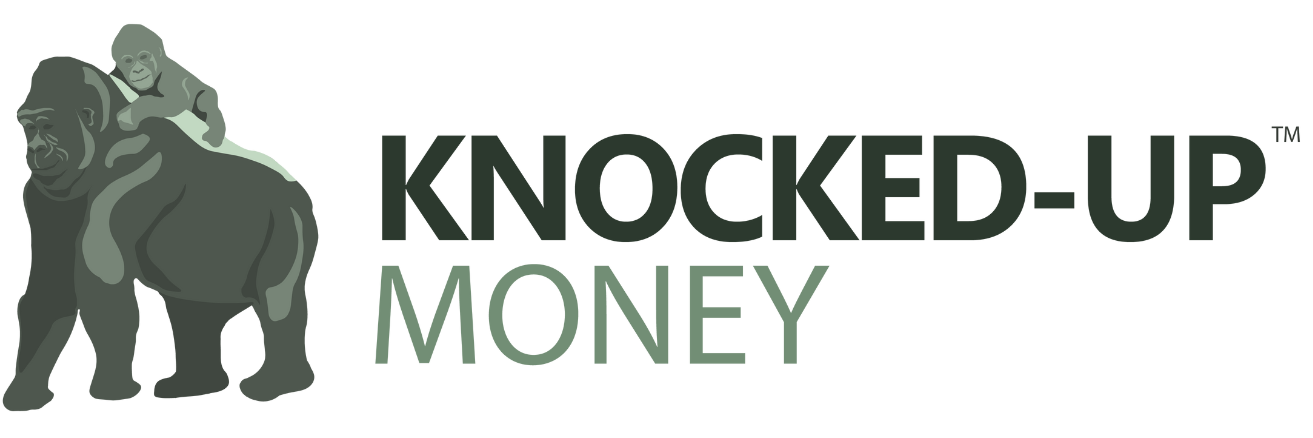3 Types of Income: Active, Passive, and Portfolio Income Explained
The Main Three:
When it comes to building wealth, there are three basic types of income: active, passive, and portfolio.
Each have their pros and cons but are all essential in the pursuit of financial independence.
Most people only focus on their active income stream, typically their primary jobs. It doesn't help that we've been told for years to simply get a job and work until Social Security kicks in.
With the rise of the side hustle and the ever-evolving gig economy, it's important to understand your options beyond the standard 9-5.
The arrival of my daughter rocked my world view. Prior to her birth, my only thought about earning more income was to climb the corporate ladder. But you know the old adage, "mo' money, mo' problems." The more an employer pays you, the more hours they expect from you in return, leaving only the scraps for the most important things in life.
Now that I'm a parent, my (limited) free time and mental capacity goes to exploring ways to increase my passive and portfolio income.
Let's break these down a bit more.
Active Income
Any income you earn from performing a service is considered active income. Think salary, commissions, tips, etc. If your employer pays you for your work, it's considered active income.
Are you a business owner? Depending on your level of involvement, the income generated is considered either active or passive.
The IRS provides guidelines on this - if you pass any of the seven material participation tests, it's considered active income.
I can't stress this enough - make sure you know if the business income is considered active or passive. If active, you may be able to write off any losses from your income.
Consult a tax professional for guidance if you are unsure.
There's nothing against active income, especially if you enjoy what you do. There are many pros: a steady paycheck (to feed your family), insurance, time off, etc. The downside to active income is that it requires you to directly trade your precious time to earn money.
Active income is a key component of building wealth, but passive and portfolio income are the game changers to being financially free.
Passive Income
Passive income is a powerful way to improve your family's financial health and achieve financial freedom. According to the IRS, passive income can be one of the following:
Trade or business activities in which you don't materially participate during the year.
Rental activities, even if you do materially participate in them, unless you're a real estate professional.
Unlike active income, passive income does not require a daily commitment to keep the money flowing in.
Examples include writing a book or creating an online course. Sure, it'll take some time to create the content and attract an audience, but once it's out there it can passively generate income for you with minimal upkeep.
Rental properties are one of the most popular examples of passive income. While not for the faint of heart, rental properties can be an excellent source of passive income and wealth building.
The IRS even allows you to materially participate in rental properties, permitting you to put as much elbow grease into the property as you see fit.
If you want to be even more hands off with your rental and not bother with tenants or repairs, you can hire a property manager to handle the day-to-day.
While this will reduce your profits, a property manager will serve as the first line-of-defense against those pesky tenants, giving you more free time to spend with your kids.
A less common example of passive income is serving as a silent investor for a local business, providing a financial investment in exchange for a share of the profits, while avoiding any hands-on operational work (to avoid material participation).
For example, lets say that your brother-in-law wants to open his own food truck. If you invest $20,000 and never participate in the business operations, it's considered passive. If you actively assist in the day-to-day operations, it's considered active income.
Have some spare cash but don't personally know any business owners who could use funding?
I'd consider angel investing - there are several great crowdsource options nowadays so that you aren't investing alone.
You typically need to be an accredited investor to angel invest in companies, but not always. If you’re curious to learn more, check out WeFunder. I’ve worked with them in the past and it was a great experience.
Portfolio Income
Portfolio income relates to income from capital gains, dividends, or interest. Portfolio income is an extremely powerful tool to build wealth and has favorable tax implications.
If an asset is held for at least 12 months, you are taxed at the long term capital gains rate, which is typically much lower than the short term rate (your ordinary tax rate).
Additionally, portfolio income does not withhold Social Security and Medicaid taxes, leaving more money in your wallet to further invest.
The most common example is purchasing stock in a company.
Let's say you buy a share of company stock at $20, and then sell the share at least a year later for $25. The $5 earnings is the capital gains, and since you held the asset for at least 12 months, you will pay the long term tax rate.
As of this writing, the long term capital gains tax caps out at 20% (depending on your income), which is much lower than the maximum ordinary tax rate at 37%. In this scenario, your money grew by 25%, which is a much higher return than simply letting it sit in a savings account.
This example applies to taxable accounts, such as a brokerage account. Other retirement accounts, such as a Roth IRA, allows investments to grow tax free.
Certain stocks also pay dividends, which reward stockholders for simply owning their stock. There are many supporters of dividend investing, including the wildly successful Warren Buffet.
Pay close attention to a stock's dividend yield: the higher the percentage, the higher the dividend payout. Kiplinger compiled an extensive list of high-dividend stocks that I'd recommend reading if you are curious to learn more.
Interest earned from income sources like peer-to-peer lending also falls into portfolio income.
While risky, lending money can be a great way to generate additional earnings. There are many services available now to help connect you to others who are in need of loans.
The finance world is ever-evolving with many new ways to grow your portfolio income. Cryptocurrency has made headlines over the past few years and is considered by many to be the future of finance. Bitcoin and Ethereum are the tip of the iceberg, web3 and crypto is far-reaching and is creating new ways to invest daily.
Just make sure to do your research before diving in.
As a parent, where should You start?
With very limited free time and a family to care for, figuring out where to start can be daunting.
Great news though, if you're reading this article, you've already started!
Taking a few minutes to research is the first step. From here, reflect on your current situation and start jotting down what's going well financially and areas of improvement.
What do you enjoy thinking about and doing?
Most would recommend focusing strictly on your active income - aka your day job. But what do they know? I personally believe that that all three work together and will need varying levels of attention as time passes.
If you are crushing your day job and have some free time - explore how to expand your passive and portfolio income. Maybe your portfolio income is on auto-pilot but you are hoping to make a change in your career.
It all depends on where you are personally.
Consider your interests before creating a new income stream - don't start something new just for the money. For example, if you start a business writing e-books, but hate writing, there's a higher chance you'll burn out and close up shop.
The same goes for portfolio income. Many of my friends have zero interest in taking an active approach to their retirement portfolios, so they place all their money in target date funds.
While these typically carry higher fees, they have peace of mind knowing that the accounts will adjust automatically as time passes.
I personally love talking about everything money-related, so I take a much more hands-on approach when investing.
Start today and follow your passions - the money will follow!


